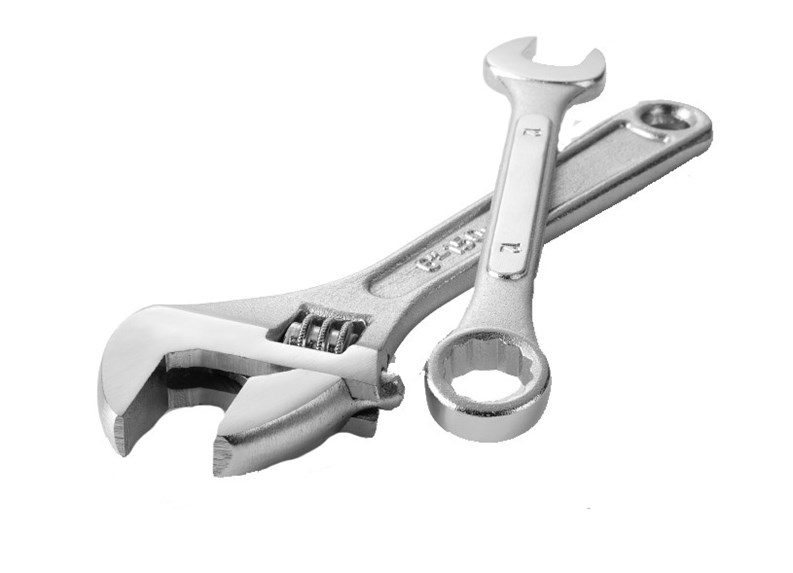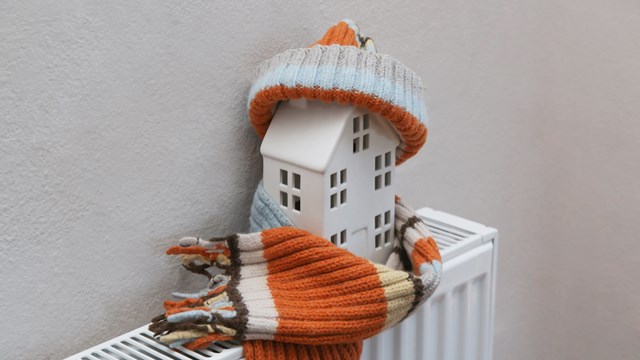Co-op boards are more likely to repair a leaking roof or paint the lobby than tackle an elevator that needs to be
upgraded. According to elevator expert Al Milo, president of Dunwell Elevator in Brooklyn, which does elevator maintenance, repairs, inspections and installations, this approach is like giving a patient a new hair-do when what he really needs is heart surgery. Similarly, buildings often choose to fix up the elevator cab while they put off the more urgent job of improving the brakes or electrical system.
While elevators are extremely safe machines, with plenty of back-up mechanisms to prevent accidents, residential buildings must adhere to a regular maintenance and inspection schedule mandated by law and comply with a list of requirements that range from posting no smoking signs in elevators to reporting accidents to the New York City Department of Buildings. Substantial fines are levied for violations.
Safe But Not Foolproof
The suspension last April of more than two-thirds of New York City's elevator inspectors following a corruption investigation (see box on page XX) may have created some unease about the safety of the city's elevators, but individuals knowledgeable about elevators say that, so far, there is little cause for concern. I don't think it's an issue, says Dick Koral, director of the Apartment House Institute of New York City Technical College. Elevators are actually the safest things in the world. They have a whole series of safety measures. It's almost impossible to defeat them. The worst thing you can be is stuck.
Elevators must comply with the safety codes of the American National Standards Institute, which protect passengers from accidents. For example, passenger elevators must have steel doors to withstand fire. The door must close before the car moves, and it cannot be opened if the car stops between floors. If there are too many people in the elevator, the motor shuts off. A speed governor stops the car if it is going too fast. Also, the doors should not close if passengers are going in or out.
Elevators are a remarkably safe means of transportation, says Marolyn Davenport, vice president for regulatory affairs at the Real Estate Board of New York. When you start looking at the kinds of serious accidents, the bulk are from some form of vandalism or kids riding them the wrong way. Yet elevators cannot be neglected, as was shown in the 1994 elevator crash in a 14th Street building occupied by the city's Human Resources Administration, which injured nine people. According to published reports, the building's elevators had experienced a lot of traffic, vandalism and maintenance problems.
The Warning Signs
Keeping a residential building's elevator system in good working order takes constant vigilance. Jeff Toplitsky, director of property management at Pride Property Management in Manhattan, describes the building superintendent as the first line of defense in keeping an elevator running smoothly. When he visits buildings he manages, Toplitsky walks through the building and asks the staff about problems or complaints about the elevator service. A good staff person keeps a log of response calls and problems, says Toplitsky.
According to David Talcott, chief executive officer of Knudson Elevato ffb r Corporation in Long Island City, there are warning signs that an elevator isn't being well-maintained. If the equipment in the elevator machine room is covered with dust, you may have problems associated with that. It should be free of dust. The equipment should be kept in a neat and clean fashion, he explains. Ken Margherini, vice president of Republic Elevator in Long Island City, adds, You'd like to have the elevator shut down less than once a month. Obviously, zero is what you're shooting for. Too many shut-downs signal poor maintenance.
Mis-leveling is a sign that the brakes are worn. This is when the elevator always stops a little above or below the floor, rather than precisely at the floor. According to Steve Tilchen, director of residential business for Millar Elevator Industries in Manhattan, co-ops that can't afford to invest in a full elevator upgrade can take a first step toward dealing with mis-leveling by installing a variable frequency AC (alternative current) drive unit to enable the car to level all the time. These drive units can be installed on existing elevator controls, thus avoiding the cost of full modernization.
Selecting a
Maintenance Contract
New York City requires residential buildings to have elevator maintenance contracts with companies approved by the Department of Buildings. The liability of an elevator malfunction is so great that you can't not have a contract, says Eric Kornfeld, an architect and executive vice president of Heron Limited, a building management firm that oversees elevator maintenance for its clients.
Buildings can choose from among three general types of maintenance contracts: full service, partial service and inspection and lubrication. The more comprehensive the contract, the higher the cost, and the more reliable your elevator will be, says Ed Voll, president of Vertical Systems Analysis, an elevator engineering and consulting firm in Manhattan. The less comprehensive contracts will require the building to pay extra for costly adjustments, repairs and breakdowns. David Talcott warns that what's full service for one company is not for another. An example is the five-year, full-load test required by the Buildings Department, which is not covered by some full-service contracts.
Full service maintenance contracts cost upwards of $200 per month, depending on the height of the building and the number of elevators, says Kornfeld. For example, Heron currently has full maintenance contracts costing $264 per month for a small one-elevator building and $949 per month for a 20-story co-op with two elevators and a side car. The contracts generally include monthly inspections and repair or replacement of such parts as the machine, motor-generator controller and automatic car door operating parts. Parts excluded from the contract might include shaftway doors and rails, mirrors, glassware and light fixtures. A typical contract also lists parts that show wear and will have to be replaced in the near future. What your contract is buying for the owner is inspection of everything, every month, notes Milo.
In seeking a good elevator service company, buildings should make sure the company is properly insured and approved by the city. Lack of insurance can be a problem if litigation occurs. You have to have a service contract with a reputable elevator company, emphasizes Kornfeld. He recommends soliciting three or four competing bids. We make sure all the elevator companies cover the same equipment, Kornfeld adds. A new company should make an initial evaluation of the elevator system and list deficiencies that need attention.
Inspectors should be licensed by New York City, which guarantees that they are experienced and trained in elevator mechanics. Voll also recommends that buildings hire inspectors qualified by the American Society of Mechanical Engineers (ASME). During mandated inspections the inspectors check equipment including cables, gears and motors in the machine room; buttons, controls and lighting in the elevator cab; the emergency bel ffb l and fireman's recall system; locking mechanisms in the door; and switches in the elevator shaft.
Once a maintenance contract is in place, a building must make sure it is carried out. If I get a lot of complaints, a lot of shutdowns, a lot of malfunctions, that obviously concerns me, says Kornfeld. [Either] the regular maintenance is not being done, or when the company took over the building, it didn't take everything apart and start from scratch. Kornfeld asks an elevator consultant to analyze the system and contract, and make a list of the deficiencies. Then he gives the elevator company a little time to bring up the performance of the systemor he hires a new company.
Having both an elevator consultant and a maintenance company look at the system provides a double-layer of assurance. In fact, Voll recommends that buildings use independent elevator consultants to inspect the elevators and elevator repair companies to do the maintenance. You don't have people inspect their own work. That's a conflict of interest, he says. If and when residents discover that the same people who were being paid to fix their elevators are being paid to inspect the same elevators, they're not going to like it.
Limited Life Expectancy
Elevators generally have a 20- to 30-year life expectancy before needing major upgradingand many elevators in New York City have reached that point. I find now that we're coming to a cycle where a lot of elevator equipment is getting to its life expectancy, says Milo. The question is: Is it cheaper to upgrade or buy new? It depends on the traffic in the building and other factors. Most buildings will opt for upgrading parts of the system before tackling a full-scale replacement. Elevator renovations are inconvenient for residents and they temporarily disrupt life in a building.
Elevator technology has advanced in recent years, with microprocessors replacing electromechanical systems to control functions like speed, acceleration and deceleration and tracking of energy consumption. According to Milo, it can cost around $20,000 to fully upgrade an elevator in a six-story building with new door operations, interlocks, electrical traveling cables, control board and selector and features such as Braille buttons and the voice announcements of stops to meet handicap requirements. The advantage of taking the financial plunge? Less chance of lawsuits, lower building insurance costs and an elevator that performs better with fewer shutdowns.
Every co-op board should include the elevator in its long-term capital plan on repairs, Talcott advises. An elevator consultant can help the board determine the time frame of major elevator repairs. Then the board can set aside funds in expectation of future expenditures. In the long run, Tilchen adds, improperly maintained elevators risk serious problems and expensive emergency and major repairs. A company has to be in there to perform quality maintenance on a monthly basis, he says. Otherwise, buildings may not realize a serious problem is developing until it's too late.
Ms. Malaspina is a freelance writer living in New York City.







10 Comments
Leave a Comment